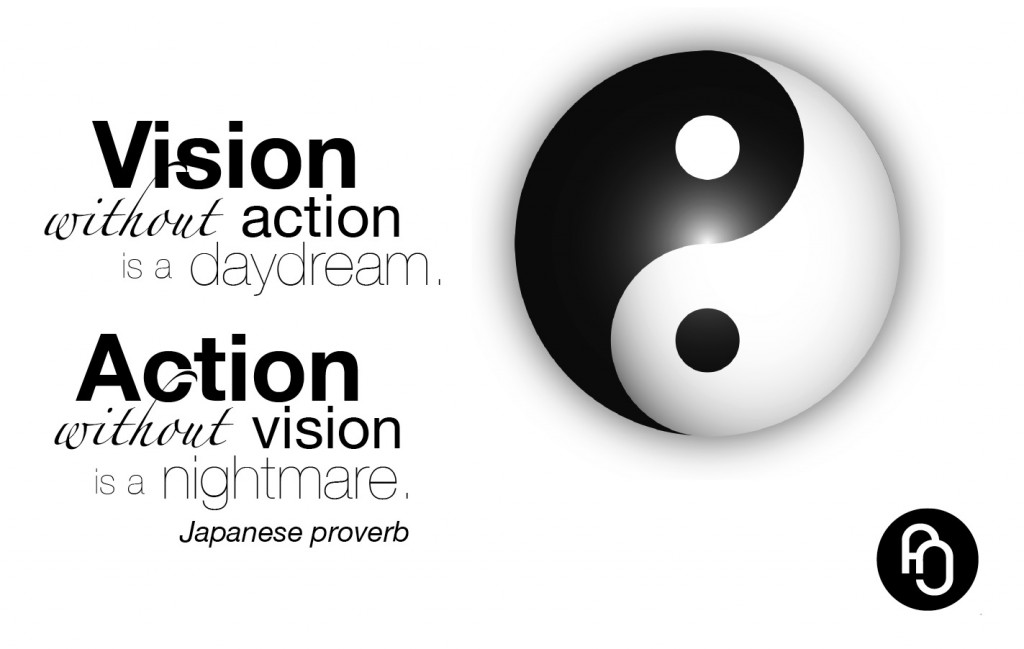What is fluency and what’s the best way to teach and learn it?
From my teaching practice I realize that the majority of my attitudes and beliefs about fluency and language learning were based on popular misconceptions generated by people who knew very little about reaching fluency.
Not only were they completely wrong, but these ideas were counterproductive to my own language learning and teaching, leaving me frustrated, confused and stagnant. I realized that my success as both a language learner and teacher would depend on me opening my mind and developing a new perspective.
The first thing I had to learn as a language learner and English teacher was separate fact from fiction, which meant abandoning my own false ideas that no longer served me or my students.
MYTH 01- FLUENT SPEAKERS DON’T MAKE MISTAKES
ADVICE: RELAX AND MAKE LOTS OF MISTAKES: COMMUNICATION > GRAMMAR
There´s a popular idea that fluency is a magical land of perfect grammar, native-like pronunciation, and unobstructed communication.
The truth is that fluency is none of these. The truth is that few people, if any (including native speakers) speak with perfect grammar, and nearly 99.9% of people who learn English as a second language will always have some sort of accent from their native language. Learn to accept this and be okay with it. You can work to smooth it out, but your accent is your cultural identity, and this isn’t a bad thing.
Good language learners learn to communicate first (or at the same time as they learn grammar), and they work through their grammar and pronunciation problems on a parallel basis or after. Mistakes will surely happen when you open your mouth, but this is the path to fluency. The baby doesn’t learn to walk by crawling. She falls and falls A LOT.
MYTH 02- FLUENCY COMES WHEN YOU LEARN ALL THE GRAMMAR
ADVICE: YOU SHOULD CULTIVATE PIECES OF FLUENCY FROM THE START
Another popular misconception, which goes hand in hand with Myth 1, is the idea that fluency is a distant reality that will come one day when you’ve learned enough English grammar.
It’s okay to expect fluency in the future and big advances in your grammar, and this is sure to happen with diligence and hard work, but you can start finding the courage to attempt small everyday pieces of fluency right now. Theory and practice should go hand in hand throughout the entire process. If you are not learning to use the grammar you learn now, you will probably forget it later.
Successful learners are able to cultivate fluency from the very beginning in specific situations. If you know only know how to introduce yourself, learn how to do this with confidence by doing it a lot, whenever, wherever, and with whoever you can. Learn basic survival English, how to say hello and goodbye, and start thinking about every grammar lesson you learn as something you will apply the next day.
This will be a big shift in your attitude that will help with everything else, bits of fluency that will not go away. It’s almost as if you are writing a script for a play that you will act in over and over again.
Every situation has an opportunity for fluency, and the first thing you should focus on are everyday situations. Fluency is not just an abstract long-term plan, but a daily opportunity that you can cultivate.
The more real life situations that you find, such as an English language learning community or group and making English a part of your daily life with Lifestyle English, the easier and more interesting your experience will be.
MYTH 03- YOU MUST STUDY ABROAD/ BE IMMERSED IN IT TO GET FLUENT
ADVICE: MAKE YOUR LIFESTYLE A CONSTANT ENGLISH IMMERSION
A study abroad/ English exchange program can be an amazing learning experience, a big help for fluency, as well as a great pleasure for your life, but it’s not a magic pill for your failures at home nor a must for reaching fluency.
There are a lot of people who believe such an experience to be the solution to all their English problems. They often buy into the myth, spend a lot of time and money going, only to come back disappointed by not having learned much English.
If you have the time and resources and are a self-directed learner, I would also recommend trying to plan backpacking trip and finding schools or programs independently as you go along. Nothing is better than meaningful cultural adventure that will grant you social and linguistic opportunities. If you want to speak English the entire type, it might be a good idea to travel alone or without other people from your country.
Even if you don’t leave your home country, fluency can be closer than you think if you adapt the proper lifestyle to support an enjoyable, consistent process that enables you to live your life through English. In this way, you don’t even need to study because you it’s part of your life and you experience it with enthusiasm.
MYTH 04-YOU NEED A CERTIFICATE/EXTERNAL APPROVAL TO BE FLUENT
ADVICE: USE CERTIFICATE EXAMS TO COMPLIMENT FLUENCY, NOT DEFINE IT
Fluency is not an external piece of paper, nor the approval of your friends or workmates. You are the only one who can decide if you’re fluent. If you need these external validations for your own personal sense of fluency, you probably haven’t developed the confidence, clarity and courage to really be okay with your level.
Receiving a piece of paper that shows you learned how to take a standardized test won’t fix that. Only real life use of the language and contact with the culture can give you a sense of personal ownership (i.e. fluency) over the language you are using.
While these tests are great and useful for giving a certain integrity and balance to your process and measuring your progress in some of the more technical areas, don’t confuse the guidance tools for the essence of your own personal sense of where you are and what you need to do.
There are plenty of people armed with a test score that gives them a sense of false confidence about their English level, while not knowing how to communicate spontaneously in a real life cultural situation that calls for them to respond in the most human and personal of ways.
CALL TO ACTION
Your call to action today is to consider and reflect upon your beliefs and attitudes toward English fluency. Do you have a good idea of what fluency is? Do you know what it feels like? Are you entirely committed?
And what about myths and preconceptions that might be damaging your language learning process? Have you abandoned the garbage that holds you back? Challenge yourself to become a better language learner and not except mediocrity.




No comments:
Post a Comment